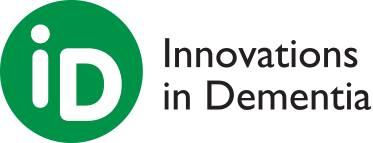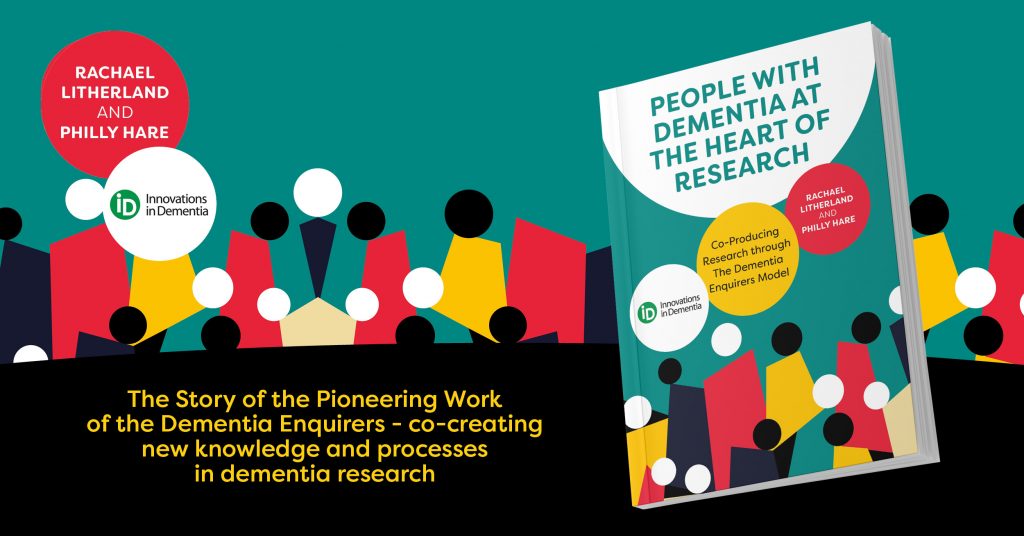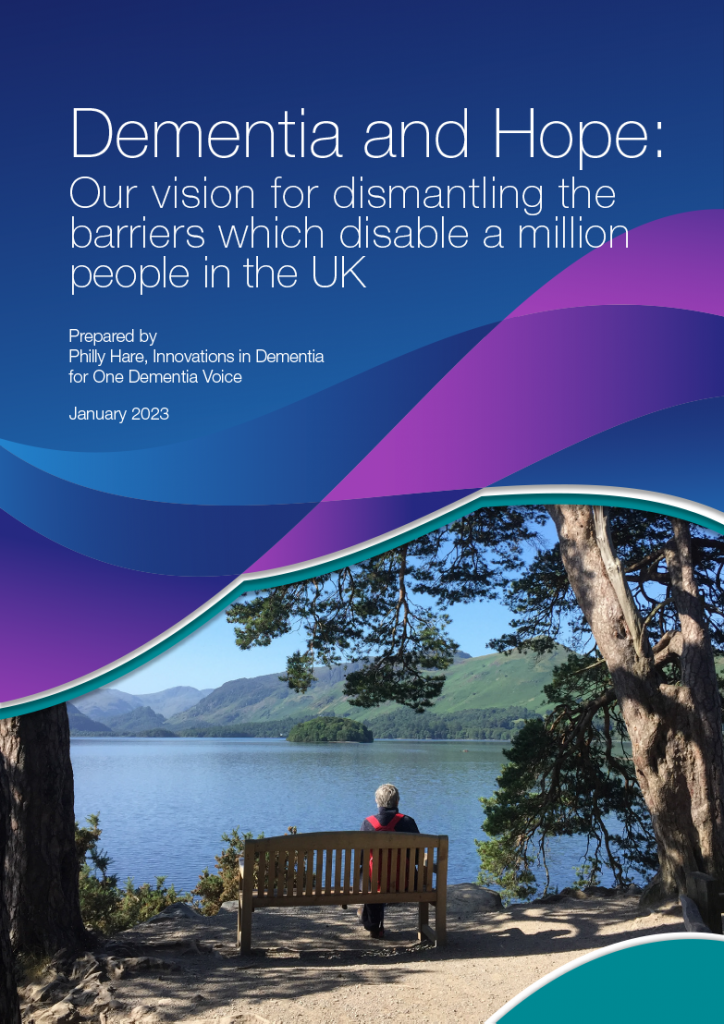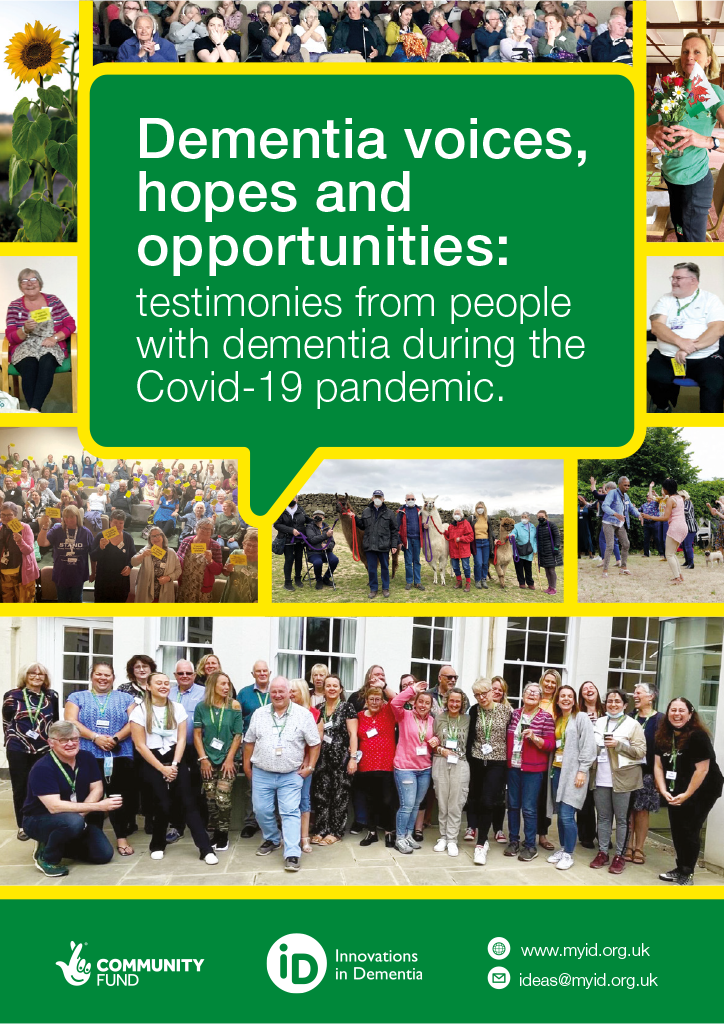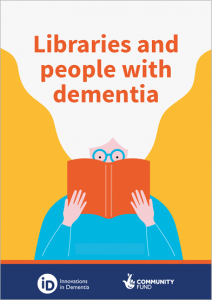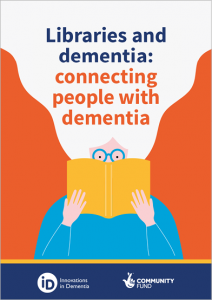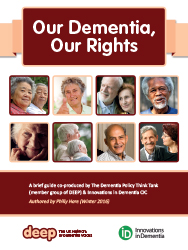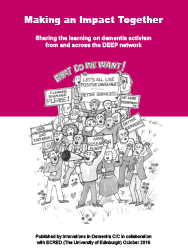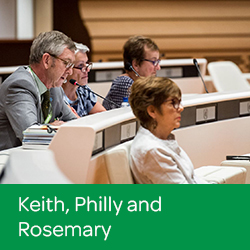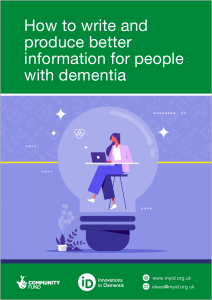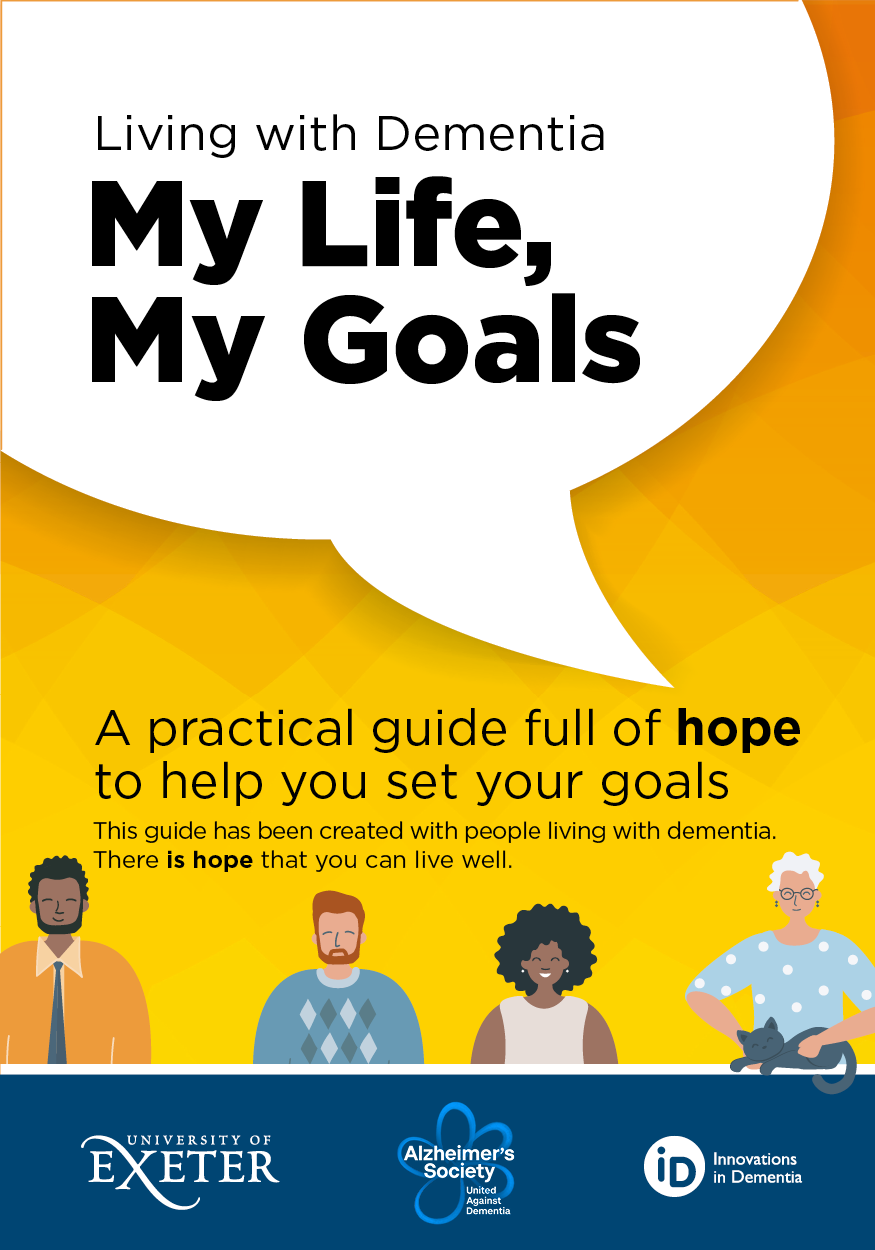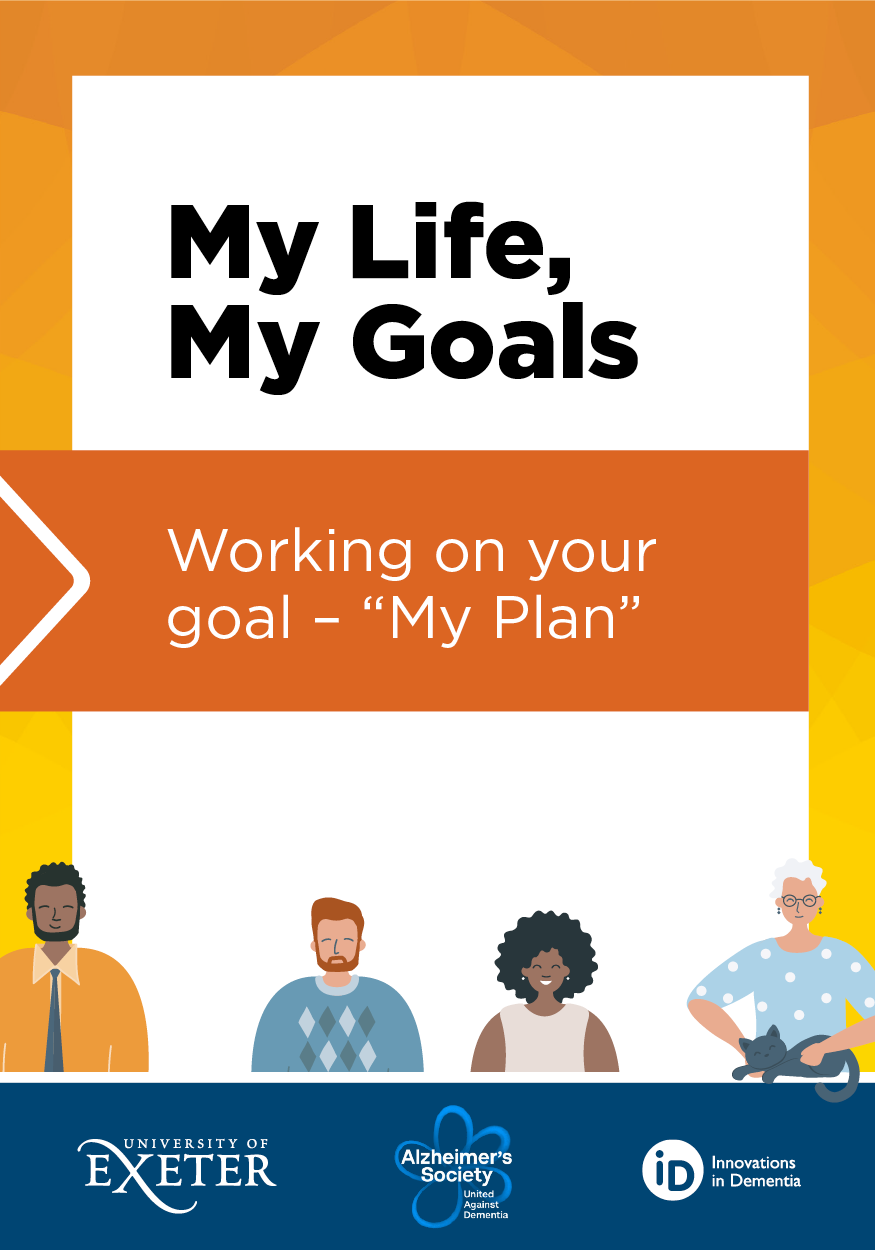
Our publications
Here is some of our work, that we have either published ourselves, or is published by our partners.
The DEEP guides have all been co-produced with people with dementia in DEEP groups.
Publications about Rights
People with dementia at the heart of research
We published a book about our Dementia Enquirers programme, showing how people with dementia have led research and developed a new ‘driving seat’ approach to co-research.
It features the 26 research projects run by DEEP groups as well as the work of Pioneers with dementia who shaped the programme. You can purchase the book direct from Jessica Kingsley Publishers here or by clicking on the image below.
‘Dementia and Hope’
This resource, prepared by Philly Hare, sets out the vision of a group of dementia organisations in the UK who have come together as One Dementia Voice (ODV). The vision is that:
- We must focus not only on the medical aspects of dementia, but also on the many other barriers which disable those affected.
- We must address these societal and environmental barriers proactively, thinking more about rights, citizenship, inclusion and equality.
- In this way we can each play our part in bringing more hope and meaning to the lives of those of us who live with this condition.
The vision has been tested by the nine ODV member organisations in the course of 2022, and we now wish to roll it out much more widely. We invite YOU to take this vision on board and implement it within your own organisation and work.
You can download it here or by clicking on the image below.
Covid report
Dementia voices, hopes and opportunities: testimonies from people with dementia during the Covid-19 pandemic.
“But for now we lie, half awake, half dreaming
Waiting to see if our clock is about to stop
Waiting for the warming sun to rise on us again
Waiting to pass into a new land
The same but profoundly different”
George Rook, 2020
In March 2020, the UK entered its first national lockdown in response to the Covid-19 pandemic. Life changed overnight, and in ways that couldn’t have been anticipated or prepared for.
Initially, like many organisations, we weren’t quite sure how to respond. How could we best support people with dementia? What sort of adjustments were needed to work in a different way? How could our programmes of work be delivered?
But of course, the solutions and approaches were all there in the huge resource of thousands of people with dementia connected, at a grassroots level, through the Dementia Voices programme.
You can download it here.
Libraries and people with dementia
We know that libraries are a safe place of connection for people, embedded in local communities. They are trusted places full of trusted people. We have been talking with libraries about how they currently support people with dementia. We also looking at new ways of supporting people with dementia in libraries. We are interested in the potential to grow a community embedded movement where people with dementia feel connected and valued and library staff feel inspired and confident.
A story of co-production: The Right to a Grand Day Out
In 2018, DEEP groups in Yorkshire worked together on transport and rights projects. This is their story – and also what they learned about co-production.
Click the show more button to read their recommendations.
iD Response to Enquiry into Dementia and Disability
In Summer 2018 the All Party Parliamentary Group on Dementia consulted on Dementia and Disability.
Click the ‘Show more’ button to view a link to our response.
Innovations in Dementia Response – Click here to view the pdf.
Our dementia, our rights 2016
The more we talk about and use the rights of people with dementia, the more our services, culture and attitudes will change for the better.
This guide has been authored by Philly Hare on behalf of the Dementia Policy Think Tank. This group – which is a member of the UK wide DEEP network – was set up in 2016 by a number of people with a diagnosis of dementia who have a particular interest in promoting rights and influencing policy issues.
Living with dementia is a challenge, and you may well need support. But getting the services and help you need is not always easy. This booklet explains why it can be helpful to know–and talk about–your rights.
Rights can help us to uphold shared values in challenging circumstances. The language of rights can help you feel more confident and empowered. Although rights and laws are about everyday life, they can feel complicated. However, there are services, helplines and advocates who can help you to ask for what you need, and to challenge decisions when they seem to ignore your rights.
Dementia rights and the social model of disability 2015
This report from the Mental Health Foundation argues that viewing dementia as a disability rather than an illness would unlock the potential for policy to be developed and services designed, delivered, and monitored by people living with dementia.
As a result, people living with dementia will have a strengthened ability to advocate for appropriate levels of investment in social care so they can live as active citizens in the community.
The report was commissioned by JRF and Innovations in Dementia supported people with dementia to be involved in writing it.
Making an impact together 2016
As the DEEP network grows, people with dementia are gaining more and more skills and expertise about how to make an impact through collective activism.
They are starting to write blogs, make films, write books and book-lets, speak at and co-chair events, and challenge the status quo. We want to support them in sharing and developing this knowledge.
In 2016, a number of DEEP member groups worked with Philly Hare to co-produce a booklet called ‘Making an Impact Together’. This draws on their experience of setting up and running influencing groups to have an impact – and aims to share their learning with others in the DEEP network. The booklet has since been translated into Japanese and is being used by the emerging dementia movement in Japan.
Shadow report to the UN convention on the rights of persons with disabilities 2017
In 2017, iD supported one of the DEEP groups – the Dementia Policy Think Tank – to co-produce a shadow report which was submitted to the
United Nations Committee for the Convention of the Rights of Persons with Disabilities.
This ground-breaking report includes many examples, quotes and stories that highlight the abuses of rights of people with dementia. We also supported Keith Oliver, a member of the group, to present the report in person in Geneva.
Publications about Accessibility
How to write and produce better information for people with dementia
Dementia can have a big effect on the ability to read.
As reading becomes more difficult, our lives are diminished in many ways.
But how difficult does reading need to be? Or rather, how difficult do we need to make it?
People with dementia can read and process information much more easily if things are well written and clearly presented.
But it’s not just people with dementia.
Good writing for people with dementia is good writing for everyone.
Click here to download our guidelines
To find out more about how we can help you, contact Steve at: steve@myid.org.uk
Dementia capable communities - the view of people with dementia 2011
In 2010, the Department of Health asked us to find out from people with dementia what kind of barriers they faced in getting out and about in their communities.
The report we produced “Dementia Capable Communities” was the first to articulate the aspirations of people with dementia and their carers in terms of staying connected to their communities in England. It identified the barriers that people faced, as well as some of the features that made communities easier to live in.
The report was launched at Department of Health event called “Big Society and Dementia”. While the broader impact of the “Big Society” concept is open to debate – the concept of what became broadly known as ‘dementia friendly communities’ was given a significant boost.
Dementia friendly communities, guidance for local councils 2012/2015
This guidance grew out of our early work for the Local Government Association, working in Sheffield and Hampshire.
The first version of the guidelines contained a toolkit of resources which were widely adopted across the UK and overseas, including in the US and Australia.
The second edition, with updated guidance, click here to view the pdf
Checklists for auditing public spaces 2017
One of the tools from the original guidance for local councils was an audit tool for public spaces.
Like many of the tools in the original guidance, it was updated and improved – and the new versions can be found here:
Checklist for OUTSIDE public spaces download pdf here.
Checklist for INSIDE public spaces download pdf here.
Getting equipped to tackle forgetfulness - top tips 2011
We worked on this guide with Foundation for Assistive Technology and Trent DSDC.
This guide is for the family and friends of people experiencing memory problems and confusion. It is particularly to help people with the early stages of dementia.
DEEP guide – Writing accessible information 2013
Information which is hard to understand is something which most of us find frustrating, and which can present a big barrier to people with dementia.
We worked with people with dementia on this brief guide to producing information that is easier for everyone to read.
DEEP guide – Involving people with dementia in creating dementia friendly communities - 2015
This guidance note is based on discussions by 15 people with dementia and 8 carers at a DEEP networking event in 2015.
DEEP is a national network of involvement/influencing groups of people with dementia across the UK.
DEEP guide – Creating websites for people with dementia 2013
More and more people with dementia are turning to the internet for information.
DEEP guide - Choosing a dementia-friendly meeting space 2013
Appropriate meeting spaces are important.
People with dementia are increasingly getting together to work on dementia issues. They are also invited to meetings and conferences.
Publications about Dementia Voices
Telling our stories 2011
Building on the success of our films made with people with dementia, we ran a 2 day workshop for people with dementia from Age UK Woodley in Berkshire – showing them how to use video to get their voices heard
This resulted in a guide to using video.
Over the rainbow 2015
DEEP published “Over the Rainbow” a report on an LGBT people and dementia support and advocacy project.
Developing a national user movement of people with dementia 2015
Published by the Joseph Rowntree Foundation this report was written by Rachael and was a summary of the learning from DEEP so far.
This paper describes the growth of DEEP over a three-year period (2012–2015).
Care home whispers 2015
This was a project we ran for Age UK Gloucestershire with our partner Imogen Blood Associates.
It spoke to 88 older people living in care homes about their experience and makes recommendations for good practice in working with older people in care homes.
DEEP guide – Dementia words matter – guidelines on language about dementia 2015
DEEP published these guidelines to accompany the Call to Action with the Dementia Action Alliance.
This guidance is for journalists, organisations and communications departments.
DEEP guide - Using sound recording to get your message across 2013
Sound recording can be used to record memories, tell stories, collect views and opinions, share information and tell people what you think.
Modern technology means this is easier to do than ever before.
Community radio stations across the UK and internet sites offer ways to get your message heard.
DEEP guide – Involving people with dementia as members of steering or advisory groups 2016
It is important that people with dementia can have direct influence.
This kind of role does not suit many people with dementia.
There are many adjustments that can be made to support people to be part of steering or advisory groups.
DEEP guide – Setting up an influencing group 2016
The DEEP network is made up of many different types of group.
Certain features are common to many of the groups.
Addressing practical considerations will help a group to run smoothly – other DEEP guides might be useful.
Linking with other groups in the DEEP network will help.
DEEP guide – Tips for organisations wanting to consult people with dementia about written documents 2013
Many organisations produce documents that may affect the lives of people with dementia.
Organisations can improve their documents if people with dementia share their views.
Many people with dementia can take part in consultations on written documents but they may need support to do so.
DEEP guide – Collecting the views of people with dementia 2013
Organisations and services increasingly want to engage with people with dementia to find out their views.
People with dementia across the UK are committed to improving services by giving their views. However, this must be organised in a supportive and respectful way.
Organisations and services should be clear about the ways in which they involve people with dementia in their work.
DEEP guide – Involving people with dementia at conferences and events 2013
People with dementia are often invited to take part in conferences and events. These opportunities provide positive ways for people to raise awareness about dementia.
Good pre-event information and an identified supporter can help people with dementia feel more confident.
Make sure you have a clear plan in place for how you are going to support the person with dementia.
DEEP guide – DEEP guide for conference presenters and speakers 2016
People with dementia are increasingly taking part in conferences and events – as presenters and as audience members.
This guide shares some good practice ideas about how to best ensure people with dementia feel welcomed and included. The guide is based on recommendations from people with dementia.
DEEP guide – Guidance for film-makers working with people with dementia 2013
Film is a powerful medium that when used positively can make a huge contribution to increasing understanding about dementia.
Involving people with dementia at every stage in the film-making process will ensure that the film reflects the messages that people with dementia want others to hear.
DEEP guide – Involving people with dementia in recruitment 2013
Many organisations recruit staff or external organisations to work with people with dementia.
There are many ways of involving people with dementia in recruitment processes.
People with dementia have the right to a say in decisions that affect their lives.
Publications about Belonging
Shared lives and dementia 2013
This is the report about our project with Shared Lives South West – looking at how adult placement could be used to support people with dementia.
DEEP guide – Changing roles 2016
People with dementia might not want to be part of a DEEP influencing group for ever – here are some thoughts on this and what to do to help accommodate changing needs.
Groups work well if they make adjustments to accommodate people’s changing needs.
Publications about Recovery and Discovery
DEEP guide – Clinical psychology in the early stages of dementia 2016
This is a brief summary of a paper produced with the British Psychological Society.
My Life, My Goals
A self- help resource for people newly diagnosed with dementia. A guide to setting and reaching goals that matter to you. Produced with University of Exeter and funded by Alzheimer’s Society.
Download My Life, My Goals by clicking on the image below:
You can also download the My Plan section of My My Life, My Goals by clicking on the image below:
Watch a series of films to accompany My Life, My Goals below:








